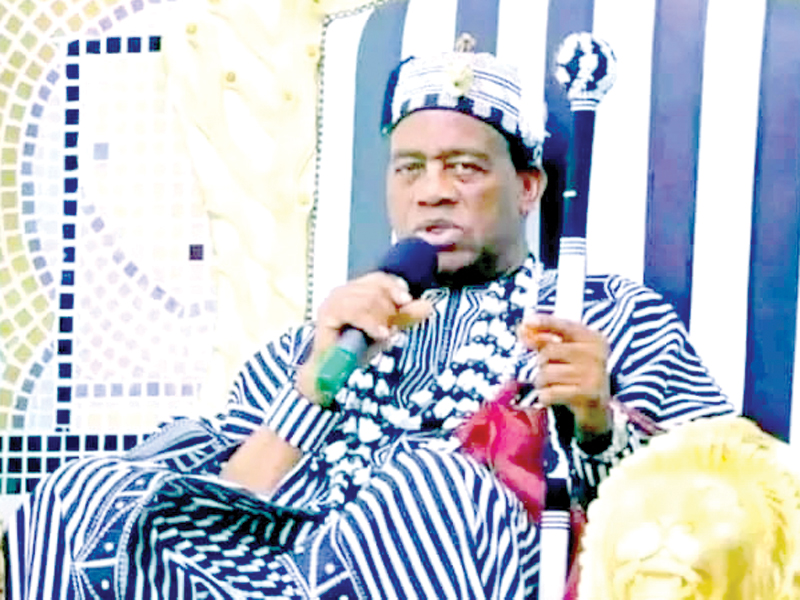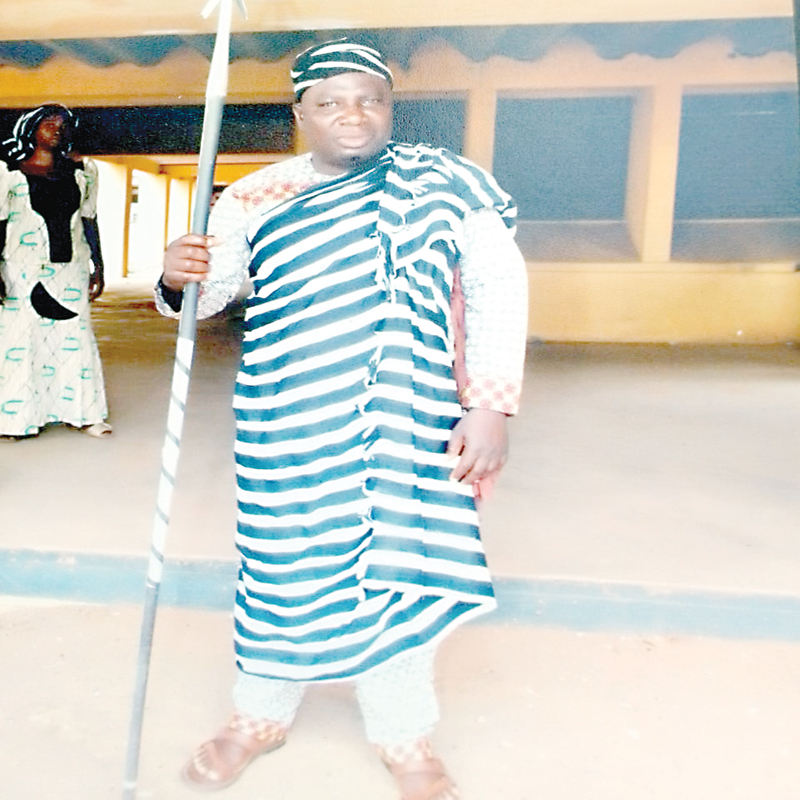Pegging the payment of bride price in Tiv land as announced by the Tiv Traditional Council at N100,000 may bring reprieve to some young people hoping to marry their loved ones. In this report, VINCENT KURAUN spoke with residents and stakeholders on why the implementation of the fee may take some time to achieve.
A couple of weeks ago, the Tiv Traditional Council headed by the Tor Tiv, Professor James Ortese Ayatse, announced that the council had pegged the highest amount to be paid as bride price in the Tiv domain at N100,000, drawing missed reactions from within and outside the region.
In the communiqué issued while making such an announcement, Ayatse also ordered the discontinuation of traditional marriage involving the cutting of the cake, dances, and parties as it is alien to the Tiv way of life, adding that “celebration of a new wife is done by the Tiv People only in the husband’s house.”
“Love should be the primary issue between the families concerned in marriage discussion and transaction, not money. Therefore, total expenses on marriage including dowry or bride price and all sundry issues, which at the moment vary from one community or family to another, should not exceed N100,000 in Tivland,” he said in the pronouncement.
The Tiv leader further said: “There is a saying in Tiv that says when you are showing someone the direction of the road; you point your finger towards the direction. Leading by example, when I was giving my daughter out in marriage, I collected N1,000 as a bride price. My daughter, whom I trained to become a surgeon, I collected N1,000 because what can you pay that will be enough? But rather love (dooshima) should be the determining factor.”
While some believed the pronouncement was in order and would help reduce the financial burden on couples and relations getting set for a union, many others believed it will have great impacts on the institution of marriage because the amount was too small.
A Professor of English at the Benue State University (BSU), David Orjime, who Sunday Tribune spoke with during the week, noted that though the policy appeared to be a move in the right direction, its implementation might be difficult to achieve.
He said that the maximum amount announced by the council was high because most marriages are expected to be predicated on love.
Using his own experience, Prof Orjime said: “When I was courting my wife in the 1980s as a young man who just graduated from the university, I had no money but there was love between us. My mother-in-law told me to take my wife to the farm and if we can raise some money, we can come pay for her bride price.
“I was given that freedom and you know the act of paying bride price is very important because when you raise children from that marriage that is the benefit of that relationship outside the love you share with your wife.
“The idea of fixing the bride price is a welcome one but it shouldn’t be taken to a level that people who are in love cannot come together because the bride price is too exorbitant.
“So, I welcome the idea from the Tiv Traditional Council and I wish we have a mechanism to make sure it is enforced.”

Historical perspective of bride price
Taking Sunday Tribune down memory lane, Prof Orjime said marriage in Tiv culture started as an exchange marriage where a family will give their daughter to another family in exchange.
“The tradition gradually moved from the practice of human exchange to other material things. We gradually moved from there to material bride price where money was not even involved. A piece of brass called ‘Bashi’ will be given to a family in exchange for their daughter. People who didn’t have that used other items in exchange for the marriage. For instance, somebody will give a native Tiv cow to a family in exchange for a wife.
“And it continued up to a point when money was introduced fully into the practice. So, people would pay as much as £1, £3 depending on the resources of such a family. All these things were done in the past without much problems,” he narrated.
He also revealed that money was introduced into the practice of marriage during the Nigerian civil war where people in the Nigerian Army would send money to their parents at home to marry a lady for them without even seeing the lady in question.
“That became a tradition and some parents even tried to sell out their daughters. That became a problem and it is still a problem so much that young men who are just beginning their lives and have no money now find it difficult to be part of that institution of marriage. That forced many young men and women to elope. Ladies and boys who find love among themselves simply marry in the streets.
“So, what the Tiv traditional council has said is a welcome idea. When people use a lot of money for marriage, you know differently that love is not in that marriage because some young men will go borrowing from people, friends and relatives in order to meet the demand,” he added.
Giving more explanation to the exchange system of marriage, the chairman, Mbatierev Community Development Association, Makurdi Branch, Chief Mkpotyo Sebastine Terhemba, whom Sunday Tribune also spoke with, said families giving out their daughters in marriage receive another female relative of the groom into their own families.
According to him, “Based on the principle of trade by barter, the underlying rationale was the need to receive, in return for giving away your daughter, a woman of equal worth as a replacement. So, the woman received in exchange represented a bride price of some sort. But this was abolished because the system essentially abused the individual’s rights to choose.”
Chief Mkpotyo further told Sunday Tribune that the system was viewed by the younger generations as not only restricting individual liberty but also contributing to cultural plurality. Also, the practice of using native Tiv cows to exchange for a wife equally brought its attendant troubles for families and gradually, that system was also abandoned.
Chief Mkpotyo told Sunday Tribune that the people’s reaction to the pronouncement pegging the amount paid for bride price is very bad with some people saying N100,000 is not enough to spend on entertaining themselves at once.
Speaking on the implementation of the policy, he explained that it may take some time for the people to get accustomed to it, recalling that time was instrumental to the implementation of similar policies in the past.
“When the Tiv Traditional Council said that the remains of any dead person should be buried within ten days, the reaction was almost the same. But overtime, the Christians, especially the Catholic Church, in the state made it mandatory for their members to bury their loved ones within two weeks.
“Now, all over the state, even if you are not a Christian and you died, the family will make sure you are buried not later than 14 days, beginning from the first day. So, it is a gradual process and I believe within a very short time, maybe the Christian community will make it mandatory and every other person will come on board.”

Other residents speak
Other young persons who spoke with Sunday Tribune in the area also expressed support for the policy.
One of them, Terkimbi Fila, who hails from Konshisha Local Government Area, couldn’t hide his excitement at the pronouncement because he believes the process and burden on young people planning to marry has been lessened.
According to him, “it is a welcome development but it is unfortunate that some of our people are not looking at the benefit. The economy right now is not so good and there are many youths that are looking at getting married but because the process is not cheap, they are being discouraged.
“A large percent of people who are already married through the process are not really happy in their marriages because they have borrowed so much to fund the marriage process.”
Fila added that those condemning the pronouncement are just speaking ill of it for the sake of it and not from the place of disapproval.
“Some have already collected the list and are in the process of getting everything done before the pronouncement. For such individuals, it might be very difficult for them to stop the process but I believe with time people will adapt to this beautiful policy,” he added.
A young lady, Dooshima, also expressed the same positive sentiment towards the pronouncement and urged the authorities to put in place a mechanism that will encourage the people to comply with the directive.
According to her, “Though, as a young lady, I am not completely happy about the pronouncement but the elders know more than we do and we were brought up to respect and listen to our elders. So, whatever pronouncement that comes from them should be respected and followed.
“I also know that the relationship between in-laws doesn’t end at the marriage ceremony, it continues thereafter. Giving your in-laws N100,000 as bride price doesn’t stop you from providing other financial assistance within the two families if the need arises.
“I attended few traditional marriages after the pronouncement and the process is not different from what the Tiv Traditional Council advised against. Maybe these families started the process before the pronouncement but I believe our parents who are also elders should see marriage as a creation of God and as well see that love is the most important factor in marriage.”
Mechanism for implementation
Speaking extensively on how the policy can be implemented, Prof Orjime, who is also a former House of Assembly member, wondered what kinds of mechanisms have been put in place by the authorities to implement the directive.
He also noted that people are very difficult to rule even in situations where they stand to benefit greatly from certain actions of government and authorities.
“Take for instance; when I was in the House of Assembly between 2004 and 2007, we enacted a law prohibiting the consumption of ogogoro. But soon after the pronouncement, there was more consumption of ogogoro in Benue State than before.
“Recently, the Tiv Traditional Council also prohibited expensive burials, but somebody died and they kept the body in the mortuary for months. You will find out that there are many mortuaries around now.
“Some businessmen even took advantage and established morgues everywhere even in rural areas. The cost of putting somebody in the mortuary for six months can be used to organise the burial of three people.
“So, people are very difficult to handle. The policies and the pronouncements are there but are they properly implemented? The fault is not only on the side of the people but also the authorities.
“Those who made the pronouncement should have to put in place a mechanism to ensure that what was said will be carried out to the letter.
“So, the Tiv Traditional Council may have pegged the bride price at not exceeding N100,000, but they are never there to ensure that these things happen.
“The local chiefs that represent the council at wedding ceremonies at the local level are still looking for a goat or transport money that will be given to them. After these things have been given to them, they leave without asking how much was paid as bride price.”
The youths have a role to play
Professor Orjime, however, noted that the youth have a huge role to play towards the implementation of the policy.
He advised that young people should try to appeal to the conscience of their parents not to see marriage as a trade, but one that is based on love, adding that “if a girl tells her parents or relatives, ‘I am in love with this young man. Please, don’t be too forward about the monetary aspect. Pray for us to stay together as husband and wife.’ The young man can also conscientise his parents even if they have money that the issue is beyond money and strictly about love and healthy co-existence.
“Young boys and girls can help in the matter by educating their parents even though the parents might claim to know everything.”
ALSO READ: EFCC probe: Root out lawyers defending Yahaya Bello, PDP chieftain tells DSS
WATCH TOP VIDEOS FROM NIGERIAN TRIBUNE TV
- Let’s Talk About SELF-AWARENESS
- Is Your Confidence Mistaken for Pride? Let’s talk about it
- Is Etiquette About Perfection…Or Just Not Being Rude?
- Top Psychologist Reveal 3 Signs You’re Struggling With Imposter Syndrome
- Do You Pick Up Work-Related Calls at Midnight or Never? Let’s Talk About Boundaries







